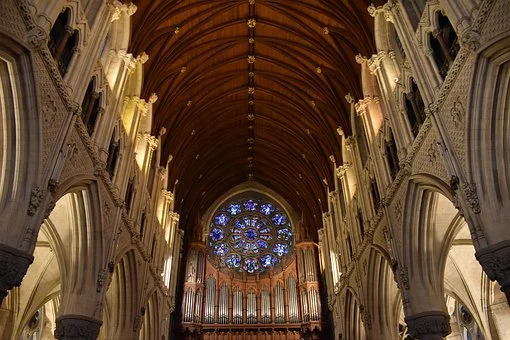A friend commented that there was a remarkable difference in the amount of media attention devoted to the death of Pele compared with the death of Pope Emeritus Benedict XV. In modern times the idea of a pope resigning the see of Rome was unheard of until now.
Time was when Radio Eireann would suspend normal programming and play solemn music instead to mark the death of a pope. There was huge interest and widespread public understanding in Ireland of the detailed process of succession to the papacy. Schoolboys would collect special sede vacante postage stamps issued by the Vatican post office.
But now that is all changed. The vast majority of the younger generation have little or no interest in or knowledge of the Vatican’s affairs except perhaps what they might glean from watching The Godfather III’s unflattering depiction of ecclesiastical scandal in Rome.
On the ground, the Irish Catholic church is visibly withering. Mass attendance has slumped and the Covid pandemic added to the rate of decline in overt religious practice among Irish Catholics. In rural Ireland, parishes are being grouped together so that Sunday masses are shared on a rotating basis among grouped parish churches. Decline in the number of priests and vocations seems irreversible.
And it seems that the worst is not over for the institutional church. Recent exposure of sexual abuse of pupils by priests and teachers in schools run by religious orders has given rise to a political commitment to establishing some form of public inquiry.
It is thought that a scoping exercise on the nature and extent of such an inquiry will commence soon. That scoping process will itself be interesting. How many other religious orders than the Spiritans should be within an inquiry’s scope. Can there be any case for excluding Christian Brothers, Jesuits, Carmelites, Franciscans, Dominicans, Salesians and other orders from inquiry? Will it extend to lay teachers? Will it extend to children abused abroad where known or suspected abusers were exiled to the missions to prevent abuse and scandal in Ireland? Will it extend to religious re-deployed from education to other functions.
Will such an inquiry deal with the issue of knowledge of such abuse by the Irish and Vatican hierarchies? What about state knowledge – departmental and prosecutorial? Will its proceedings be held in public or in private?
One thing is clear; any prospect of providing a report within two or three years will depend entirely on the architecture of any inquiry.
The Commission of Investigation into clerical abuse by the clergy of the Dublin archdiocese’s report was widely seen as a great success. But Judge Yvonne Murphy was required by its terms of reference to inquire in private into a small sample of cases where priests were accused of abuse.
A newspaper recently reported that the Jesuit order in Ireland had already paid €6.4 million to victims of abuse. Presumably that sum cannot all have been paid to the 10 victims of the only named abuser, the deceased Father Joseph Marmion, who came forward. It suggests many more victims and some more perpetrators.
Will all victims want to go public in the same way that some brave victims of Spiritan abuse have done? Can an inquiry held in public name perpetrators – suspected or proven- while affording complete privacy to victims?
The Mother and Baby Homes Commission of Investigation became controversial precisely because it deviated from the purpose of the Commissions of Investigation Act to provide for a confidential committee process to enable all comers without limit to put their experiences as victims onto a record, while dealing with a sample of homes for the purposes of the main inquiry. Judge Murphy and her fellow commissioners were criticised -I think unfairly – for not conducting some form of remedial process for the cruelly treated women and children cast out of from a hypocritical social community.
People demand a rights-based approach to inquiries. People propose a victim-led inquiry. If inquiries are designed to bring closure and healing to victims, and if they are victim-led, are they in some sense drifting into social theatre rather than wholly impartial ascertainment of truth?
The Commissions of Investigation Act 2004, which I introduced as justice minister, was never intended to be a social theatre or a healing mechanism for historical wrongs.
That is why we need clarity now. A massively lengthy, comprehensive and expensive inquiry into all sexual abuse of religious secondary school pupils may be less useful than a focused, sample-based inquiry. That is a banana skin decision for politicians.
For the Catholic church in Ireland, and for all the decent religious who gave their lives to doing good, there seems to be no good news on the horizon.

